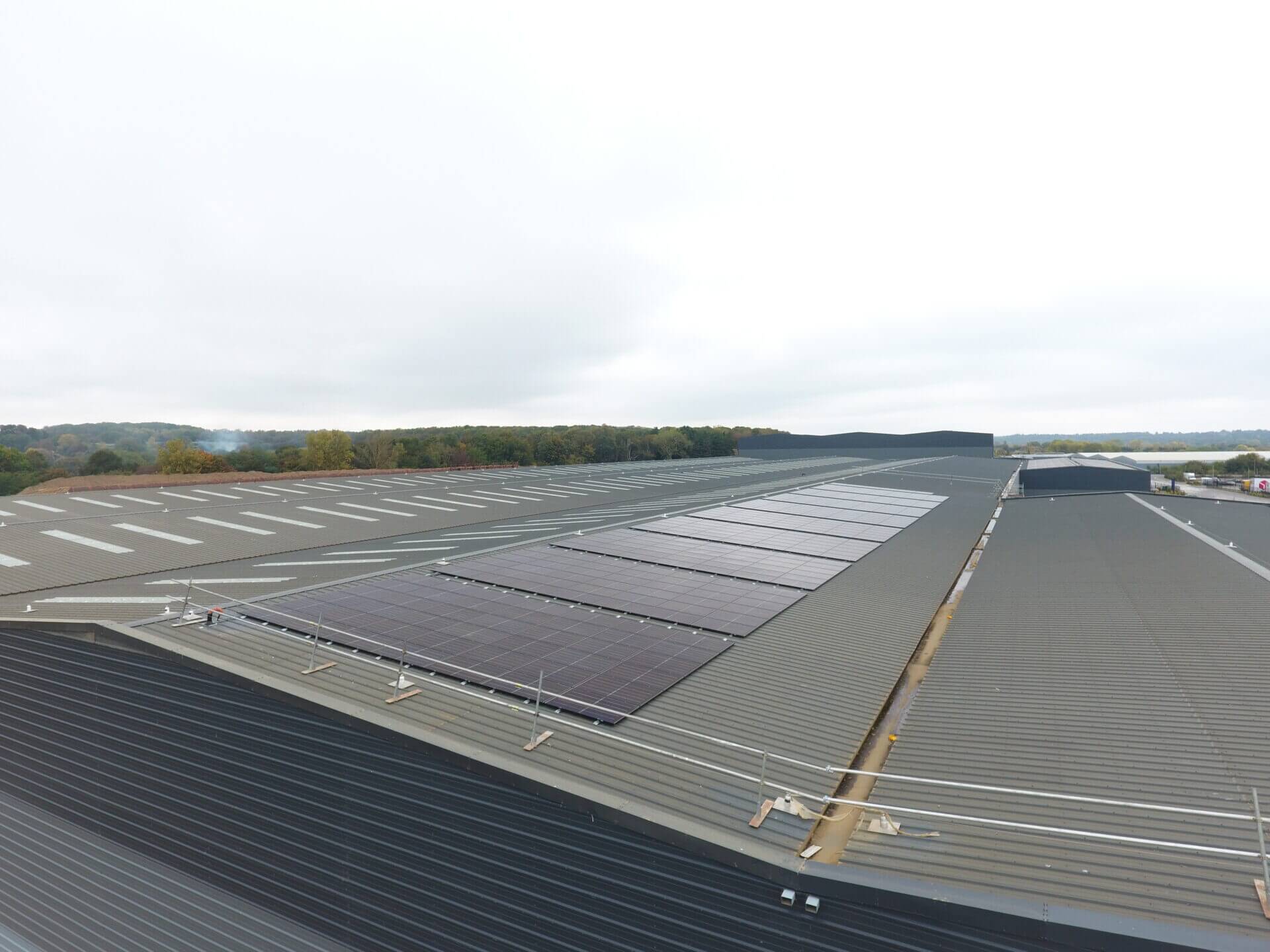The Future of Solar Energy in Achieving Global Eco Goals, the world is facing a big challenge with climate change. It is now more important than ever to switch to renewable energy sources. Among these sources, solar energy stands out as a key pillar in achieving global eco-sustainability objectives.
Solar energy has great potential for growth. It can lower carbon emissions and fit into city and country settings. This makes solar energy a key part of a cleaner and more sustainable future.
This article explores the role of solar energy in the global shift towards sustainability. We will look at its current role in carbon neutrality. We will also explore the technology that will shape its future. Finally, we will discuss the economic and social effects of its growth.
By the end, you will understand why solar energy is not just an option. It is a necessity for achieving eco-sustainability goals around the world.
Solar Energy And Carbon Neutrality
Reducing global carbon emissions is paramount to mitigating the effects of climate change. Solar energy directly aligns with this goal due to its ability to generate electricity without releasing greenhouse gases.
According to the International Energy Agency (IEA), solar energy helped avoid over 875 million metric tonnes of CO₂ emissions globally in 2022 alone. With countries establishing ambitious net-zero emission targets such as the UK’s aim to reach net-zero by 2050, and the EU’s climate neutrality goal solar energy is a critical enabler of such policies.
By substituting fossil fuels with solar energy in power generation and industrial applications, the world is taking significant steps toward decarbonisation. Additionally, solar energy supports clean mobility initiatives, powering electric vehicles and reducing reliance on coal-powered grids.

Technological Advancements Driving The Future Of Solar Energy
Innovations in solar technology have made energy harnessed from the sun more efficient, affordable, and versatile. Here are some of the most impactful advancements redefining the future of solar energy:
- Cutting-Edge Solar Panels
The development of high-efficiency solar cells, like heterojunction technology and tandem cells, is boosting energy conversion rates. These advancements can offer up to 26% efficiency for solar panels.
- Energy Storage Systems
Battery technologies like lithium-ion and flow batteries are enabling effective energy storage, addressing the intermittency issue of solar power. These solutions ensure a stable energy supply even when sunlight is unavailable.
- Solar Tracking Systems
Using advanced tracking systems helps solar panels follow the sun. This can increase energy output by up to 25% compared to fixed panels.
- Building-Integrated Photovoltaics
BIPV technology incorporates solar modules into building materials like windows and roofs, transforming urban infrastructure into energy-generating assets.
These innovations demonstrate the potential to revolutionise solar energy, accelerating both adoption and impact.

Economic Impacts Of Expanding Solar Energy
Expanding the solar energy sector not only advances environmental goals but also yields significant socio-economic benefits.
Job Creation
The solar energy industry is a major contributor to employment. The International Renewable Energy Agency (IRENA) estimates that solar PV accounted for over 4.3 million jobs worldwide in 2021, making it the largest employer among all renewable energy sectors.
Energy Cost Reduction
The cost of solar technology has dropped dramatically by over 85% in the last decade, according to BloombergNEF. This decline makes solar energy one of the most affordable electricity sources globally, reducing energy costs for households and businesses alike.
Economic Resilience
Investing in solar infrastructure creates a decentralised energy system that is less vulnerable to geopolitical risks, such as fuel price volatility and supply disruptions.
Solar Energy In Urban And Rural Development
Solar energy is very versatile. It changes the game in cities and rural areas. It helps solve different challenges in each place.
Urban Areas
Cities can utilise solar installations on rooftops, carports, and public spaces to meet increasing energy demands sustainably. Smart cities are incorporating solar-powered streetlights, EV charging stations, and urban micro-grids to enhance energy efficiency and reduce their carbon footprint.
Rural Areas
In remote and underserved regions, solar energy is closing the energy access gap. Off-grid solar systems offer reliable electricity to communities without existing infrastructure, improving access to education, healthcare, and clean water. For instance, solar-powered water pumps have revolutionised agricultural practices in Sub-Saharan Africa and South Asia.
Overcoming Challenges To Solar Energy Adoption
Despite its many benefits, solar energy still faces obstacles including high initial costs, regulatory hurdles, and land use concerns. Fortunately, ongoing innovations and collaborative efforts are addressing these challenges:
- Financing Models: Subsidies, tax incentives, Purchase Power Agreements (PPA) and green bonds are making solar installation more affordable for individuals and organisations.
- Policy Support: Streamlined permitting processes and supportive regulations are accelerating solar project development.
- Land Use Solutions: Floating solar farms and agrivoltaics (combining agriculture with solar installations) optimise land usage without compromising food production or open space.
Through sustained coordination across sectors, these barriers are gradually being dismantled.
Policy And Global Cooperation In Advancing Solar Energy
To achieve global eco-sustainability goals, policies and international collaboration are critical.
Organisations like the International Solar Alliance (ISA) are building frameworks for cooperation, technology sharing, and financing to accelerate solar adoption worldwide.
The Role of Governments:
- Setting renewable energy targets and offering subsidies.
- Developing national energy transition plans.
- Mandating rooftop solar installations on new buildings.
Global Partnerships:
Collaborative efforts like the Paris Agreement and the UN Sustainable Development Goals (SDGs) encourage countries to use solar energy. These initiatives help countries include solar energy in their climate action plans. This sets the stage for larger-scale implementation.

Looking Ahead: Solar Energy As The Cornerstone Of Sustainability
The future of global eco-sustainability relies on working together, new technology, and sustainable practices. Solar energy will be key to these efforts.
Solar power is changing how we create and use energy. It is becoming more efficient, affordable, and accessible. This shift also helps with important environmental and social goals.
To achieve a sustainable, low-carbon future, the world must continue to scale its solar efforts. Policymakers, businesses, and individuals all have a role in this transition. Solar energy is not just an alternative, it’s the key to a cleaner, brighter tomorrow.

